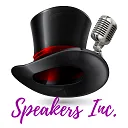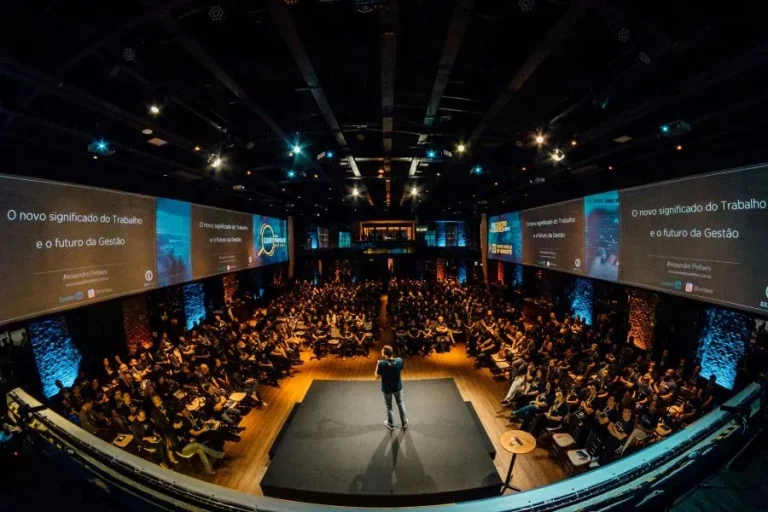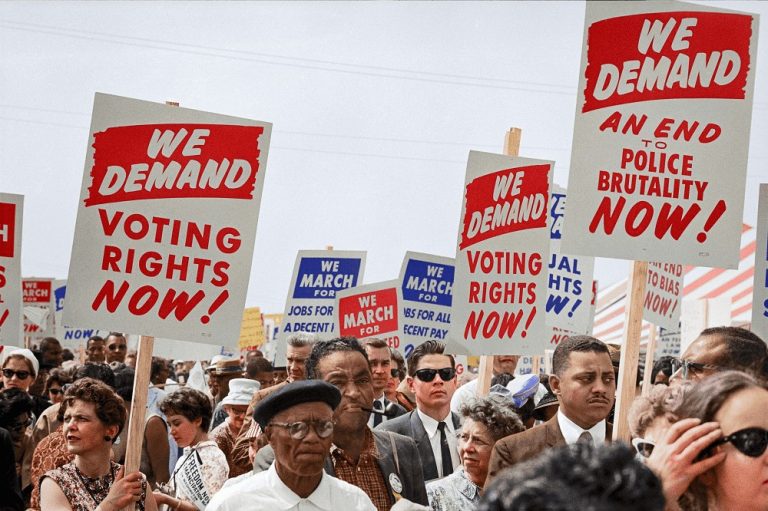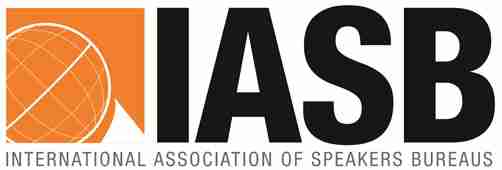- Author: Speakers Inc
- Word Count: 1804
Read the news article
Why Teams and Employees Resist Change: Understanding the Dynamics and Overcoming the Barriers
Change is an inevitable force in the modern workplace. Companies restructure, policies shift, technologies evolve, and markets fluctuate. Despite change being constant, teams often respond with hesitation or even outright resistance. Leaders who fail to understand the root causes behind this resistance risk stalled initiatives, reduced productivity, and strained relationships. Conversely, those who delve into the why, what, and how of change resistance—and act upon their understanding—can foster a more agile, resilient, and engaged workforce.
Why Teams and Employees Resist Change
What Does Resistance to Change Look Like?
Before tackling Why Teams and Employees Resist Change, it’s helpful to identify the forms it takes. Resistance isn’t always open defiance. Sometimes it’s subtle.
Teams may exhibit various behaviors, including:
Employees might quietly disengage when new initiatives appear. For instance, team members who once participated enthusiastically in brainstorming sessions may suddenly limit their contributions or appear indifferent.
A rise in negative comments, criticisms, and doubts often signals resistance. You might hear grumbles at the water cooler or see a spike in written complaints via internal messaging channels.
Deadlines might be pushed back without a clear reason. Employees who previously completed tasks promptly may begin turning in work late or offer excuses.
Some people may respond by seeking positions elsewhere—either in different departments or at other organizations. Elevated turnover is a common byproduct of poorly managed change. This can be direct (e.g., openly refusing to use a new software system) or indirect (e.g., continuing old methods despite guidance to change).
Understanding these visible behaviors helps leaders spot resistance early, enabling them to respond effectively before problems become entrenched.
Why Do Teams and Employees Resist Change?
Resistance to change often arises from underlying human factors and organizational conditions.
Key reasons include:
- Fear of the Unknown: Change introduces uncertainty. Employees may worry about how a new process will affect their workload, whether they can keep pace with new technology, or if their position itself might become obsolete.
- Uncertainty is uncomfortable, and clinging to the known—even if it’s imperfect—feels safer.
- Loss of Control and Autonomy: People value having a degree of control over their work. When a new system or policy is imposed without their input, employees can feel sidelined. This perceived loss of control breeds resentment and a desire to revert to the old ways.
- Inadequate Communication: Poor or inconsistent communication fosters suspicion. If leaders fail to explain the reasons behind change, the expected benefits, and the steps involved, employees fill in the gaps with worst-case scenarios. Unclear messaging often amplifies fear and confusion.
- Past Experiences and Cultural Norms: An organization’s history with change matters. If previous change initiatives were poorly managed—causing stress or job losses—employees will be skeptical. Likewise, if the culture rewards stability and punishes experimentation, change will clash with deeply ingrained values.
- Perceived Threat to Skills and Identity: Employees often identify closely with their current roles and skill sets.
- Changes that render hard-earned expertise less relevant can threaten an employee’s sense of professional identity.
- Feeling undervalued or out-of-date prompts pushback.
- Lack of Trust in Leadership: Trust is the bedrock of positive change adoption. If employees sense that leaders are not transparent, don’t have their best interests at heart, or are pushing change for self-serving reasons, resistance will follow.
- Overload and Fatigue: Change initiatives piled onto already heavy workloads can overwhelm employees. When staff members are stretched thin, even beneficial changes can feel like just another burden.
How to Overcome Resistance: Strategies for Leaders and Organizations
Dealing effectively with resistance requires approaching change as a people-centered process, not merely a technical or structural shift.
Here are proven strategies to Why Teams and Employees Resist Change:
Communicate Early, Often, and Clearly: Explain the purpose behind the change, the timeline, the resources available, and how it will benefit both the organization and individuals. Ensure that communication is two-way. Listening sessions, Q&A forums, and feedback loops help employees feel heard.
Involve Employees in the Process: When possible, co-create the path forward. Soliciting input, delegating roles in planning, and inviting collaboration reduces fear and distrust. Feeling like a contributor, rather than a passive recipient, empowers employees and reduces resistance.
Provide Training and Support: If the change involves new systems or technologies, invest in thorough training. Offer workshops, practice sessions, and one-on-one coaching. Providing the means to master new skills diminishes fear and makes employees feel supported.
Celebrate Small Wins: Highlight milestones and recognize employees who adapt successfully. Positive reinforcement motivates others to see the benefits and encourages a forward momentum. Celebrating progress fosters a narrative of possibility rather than doom.
Acknowledge and Address Fears: Don’t dismiss employee concerns as trivial. Validate their feelings, reassure them where possible, and be honest if the change might be challenging. Showing empathy and understanding helps rebuild trust.
Model the Desired Behaviors from the Top: Leaders must embrace the change themselves. When managers demonstrate adaptability, openness, and enthusiasm, employees are more likely to follow suit. Conversely, if leaders appear resistant or hypocritical, employees will take cues from them.
Manage the Pace of Change: If your organization faces multiple upheavals at once, consider staggering them. This gives employees time to adjust, reducing overload and fatigue. A well-paced approach respects employees’ capacity to adapt.
Link Change to a Higher Purpose: Show employees the bigger picture—how the change aligns with organizational values, customer satisfaction, or social impact. When employees believe their efforts contribute to something meaningful, resistance often fades in favor of pride and purpose.
Actionable Takeaways for Leaders and Organizations
- Conduct a Pre-Change Survey: Before introducing change, survey your teams about their readiness and concerns. You’ll gain valuable insights that allow you to tailor your communication and training.
- Create “Change Champions” Within the Team: Identify influential employees who can advocate for and model the desired behaviors. Their endorsement can sway skeptics more effectively than top-down directives.
- Host Interactive Forums: Schedule town halls, virtual Q&As, or small group discussions to address worries and clarify details. Transparency reduces rumors and suspicion.
- Offer Personalized Support Plans: Recognize that different employees have different needs. Some may require more time to learn new skills; others might need reassurance about job security. Tailoring support shows genuine care.
- Measure and Report on Progress: Share metrics on how the change impacts efficiency, customer satisfaction, or revenue growth. Demonstrating tangible outcomes validates the effort and encourages ongoing buy-in.
Ensuring Long-Term Cultural Change
Once a new system or practice is in place, consider how to embed a culture that values adaptability. This involves continuous learning opportunities, encouraging open dialogue, rewarding innovative thinking, and celebrating those who take calculated risks. Over time, as employees experience well-managed change initiatives, their default response may shift from resistance to curiosity and confidence.
It’s important to note that resistance is not inherently negative—it can signal valid concerns that may improve your change plans if heeded. When leaders see resistance as a chance to engage, listen, and refine their strategies, they often emerge with stronger, more resilient organizations.
Our selection of Keynote Speakers
These Why Teams and Employees Resist Change speakers offer a range of insights—from personal leadership and cultural adaptation to innovation and future-readiness to Why Teams and Employees Resist Change—ensuring that your teams receive a comprehensive understanding of how to navigate and embrace change.
Mary Abbajay
Expertise & Approach: Mary Abbajay is an acclaimed leadership coach and author who helps organizations develop thriving workplace cultures, enhance collaboration, and improve leadership capabilities when your leaders wonder Why Teams and Employees Resist Change.
Why Consider Her: Abbajay focuses on practical tools for improving communication, managing expectations, and aligning employees with new initiatives. Her guidance empowers teams to proactively address challenges and adjust to evolving roles, making the path to change smoother and more inclusive.
Michael McQueen
Expertise & Approach: Michael McQueen specializes in identifying emerging trends and technologies that influence business landscapes. As a futurist and innovation expert, he equips audiences with strategies to anticipate disruption and respond effectively to Why Teams and Employees Resist Change.
Why Consider Him: McQueen’s insights demystify the uncertainty that often fuels resistance. By highlighting upcoming shifts and offering clear steps for adaptation, he encourages employees to embrace change with confidence rather than apprehension, ensuring that organizations stay ahead of the curve.
Kathy Cleveland Bull
Expertise & Approach: Kathy Cleveland Bull addresses personal and organizational transformation by blending psychology, leadership theory, and practical strategies. She underscores the human dimension of change, focusing on emotions, relationships, and resilience.
Why Consider Her: Bull emphasizes that handling change involves understanding both the organization’s goals and employees’ experiences. Her counsel helps leaders and teams acknowledge fears, build trust, and create supportive environments that foster genuine buy-in, reducing pushback and increasing alignment.
Polly LaBarre
Expertise & Approach: Polly LaBarre, a recognized change management expert, encourages organizations to challenge conventional thinking. She helps teams develop innovative mindsets, break from stagnant routines, and cultivate workplaces primed for continuous improvement.
Why Consider Her: LaBarre’s message resonates with employees who might feel trapped in outdated processes. By illustrating how rethinking norms can unlock creativity and competitiveness, she motivates staff to see change not as a threat, but as a gateway to fresh possibilities.
Dr. Deborah Gilboa
Expertise & Approach: Dr. Deborah Gilboa (often known as “Dr. G”) is an expert in resilience and developing flexible mindsets. She offers actionable strategies to help individuals and organizations grow stronger through adversity.
Why Consider Her: Dr. G reframes change as a catalyst for building resilience. By teaching employees how to recover, adapt, and even thrive in shifting environments, she instills a sense of empowerment that reduces resistance and fuels progress.
How to Integrate a Speaker’s Insights into Lasting Change
After each keynote, host skill-building sessions that allow teams to practice the speaker’s frameworks, turning insights into tangible actions.
Encourage groups to meet regularly, sharing successes and challenges as they apply new principles, reinforcing learning through conversation and collective problem-solving.
Define how you’ll measure the impact of these insights—improved response times, more innovative ideas submitted, higher employee engagement scores—so teams see the value of embracing new approaches.
Weave lessons from the speakers into internal communications, training materials, and onboarding sessions. Over time, the language of adaptability, empathy, innovation, and resilience becomes ingrained, nurturing a culture that naturally welcomes change.
By selecting and combining the teachings of Mary Abbajay, Michael McQueen, Kathy Cleveland Bull, Polly LaBarre, and Dr. Deborah Gilboa, you create a holistic roadmap as Why Teams and Employees Resist Change. Their collective insights help leaders and teams transform uncertainty into opportunities, ensuring that the organization not only survives but thrives amid constant evolution.
Contact us at Speakers Inc and follow us on Twitter
Speaker Listing
No results available
Further articles you may enjoy:
- (28)
Rocket Science Meets Real Life: Why Olympia LePoint Is the AI and Innovation Speaker You Didn’t Know You Needed In a world inundated with tech buzzwords and innovation hype, few voices cut through the noise with clarity, charisma, and credibility. Olympia LePoint does. A rocket scientist turned transformational keynote speaker, LePoint is redefining what it […]
- May 2, 2025
- (42)
Wildlife motivational speakers are unique in the world of keynote speakers. They draw from the wonders of nature and their experiences in the wild to inspire and motivate audiences. These speakers often possess backgrounds as conservationists, wildlife experts, adventurers, and environmentalists. Their messages are not only about protecting the planet but also about leadership, resilience, […]
- August 15, 2024
- (23)
Booking a Keynote Speaker in 2025 when the world of events is evolving—fast. Whether you’re planning a leadership summit, corporate offsite, or global conference, your keynote speaker is no longer just an opener, they’re a catalyst for engagement, transformation, and brand alignment. So what are the biggest trends influencing how event planners when Booking a […]
- April 6, 2025
- (10)
In the bustling world of sales, where targets and quotas often overshadow human connection, Elyse Archer stands out as a beacon of Transforming Sales through Authenticity. Based in Charlotte, NC, Elyse is not just a sales speaker; she is a transformative force who is reshaping how sales professionals approach their craft. With a compelling blend […]
- June 24, 2024
- (16)
Celebrating African American History Month: A Spotlight on Black Keynote Speakers and Their Impact February is a month dedicated to honoring the rich heritage, achievements, and contributions of African Americans. African American History Month, also known as Black History Month, serves as a poignant reminder of the struggles, triumphs, and resilience of the African American […]
- January 31, 2024
- (37)
Empowering Minds: The Impact of Motivational Speakers in Atlanta, Georgia Introduction: Atlanta, Georgia, a vibrant hub of culture, commerce, and innovation, has become a focal point for individuals seeking inspiration and motivation. Within this dynamic cityscape, motivational conference speakers have emerged as catalysts for change, guiding audiences towards personal and professional growth. In this article, […]
- January 26, 2024
- (2)
With all the recent fervor over the confrontation between Will Smith and Chris Rock at the Oscars® over a comment made about Jada Pinkett Smith, there’s one character I have yet to Change Your Perspective, Improve Your Response to see explored in the aftermath: G.I. Jane. Several years ago, when I was building my business […]
- December 19, 2022
- (12)
Michelle Curran: A Beacon of Leadership, Motivation, and Teamwork In the dynamic landscape of leadership and motivation, certain individuals emerge as beacons, guiding others through the intricacies of teamwork and motivation. Among these luminaries stands Michelle “Mace” Curran, a name synonymous with excellence in leadership, motivation, and teamwork. With a background steeped in military expertise […]
- April 26, 2024
No results available
















